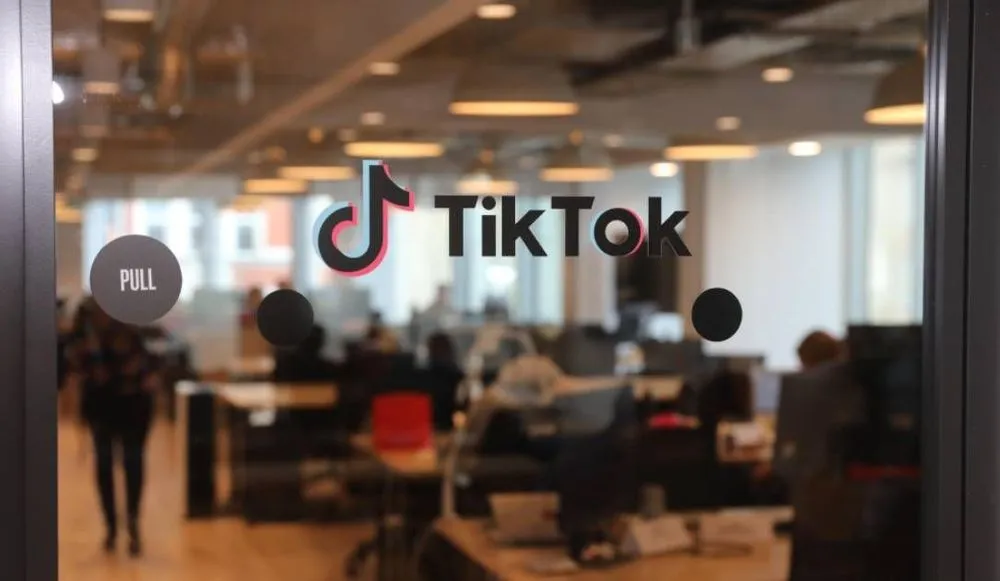Canada to force TikTok to dissolve its business in the country
Canada on Wednesday ordered that Chinese-owned TikTok “wind up” its business in the country, citing national security risks posed by the ubiquitous social media platform.
While the Canadian government ordered TikTok to close its offices in the country, it is not banning Canadians’ from using the popular app. U.S. Congress passed a controversial law that will do just that in April.
TikTok is owned by the Chinese company ByteDance, a fact which many Western governments have said makes the app a vehicle for disinformation and a tool for spying on Americans.
Canada plans to dissolve TikTok Technology Canada, Inc. after what Innovation Minister Francois-Phillippe Champagne called a “multi-step national security review process, which involves rigorous scrutiny by Canada’s national security and intelligence community.”
"The government is taking action to address the specific national security risks related to ByteDance Ltd's operations in Canada," Champagne said in a statement.
Canada made its decision based on evidence it collected during its review of TikTok’s business and a planned Canadian expansion. The country’s security and intelligence community recommended blocking TikTok’s plans in the wake of that review, the statement said.
A spokesperson for TikTok said in a statement that “shutting down TikTok’s Canadian offices and destroying hundreds of well-paying local jobs is not in anyone's best interest.”
The company will go to court to challenge the government order, the statement said.
Canadian law allows the government to review and block foreign investment if it believes they threaten national security.
The announcement stressed that Canadian citizens can still create content and otherwise use the app.
“The decision to use a social media application or platform is a personal choice,” Champagne’s statement said.
But he warned Canadians to adopt good cybersecurity practices and “assess the possible risks of using social media platforms and applications, including how their information is likely to be protected, managed, used and shared by foreign actors, as well as to be aware of which country’s laws apply.”
The Canadian government’s move follows a more aggressive approach being undertaken by the U.S. In April, President Joe Biden signed a law that will ban TikTok unless it is sold within a year.
Once in place — if the forthcoming Trump administration and likely Republican-dominated Congress do not switch course — the law will force Apple and Google to cut TikTok from app stores and will outlaw web services from hosting the platform.
TikTok is suing the Justice Department to stop the law from taking effect.
Social media companies are increasingly finding themselves in the sights of national authorities bent on regulating them. In addition to the TikTok ban, U.S. Congress continues to mull sweeping legislation known as the Kids Online Safety and Privacy Act (KOSPA) which will strictly restrict the content children can access on platforms and better protect their privacy.
The Senate passed KOSPA in July and it is awaiting action in the U.S. House of Representatives.
Australia’s Prime Minister Anthony Albanese announced Thursday that the legislature there will introduce a bill which would ban all children under 16 from accessing X, TikTok, Instagram and Facebook.
The Australian government has been studying age restriction technologies which civil liberties advocates say violate the privacy of all web users.
Albanese portrayed the action as vital to protecting Australian children and said social media companies will be expected to take over what has been a difficult issue for families to manage.
“The onus will be on social media platforms to demonstrate they are taking reasonable steps to prevent access,” Albanese said at a press conference. “The onus won’t be on parents or young people.”
Correction: An earlier version of this story misstated that the Canadian government would establish TikTok Technology Canada, Inc. — it would dissolve that entity.
Suzanne Smalley
is a reporter covering digital privacy, surveillance technologies and cybersecurity policy for The Record. She was previously a cybersecurity reporter at CyberScoop. Earlier in her career Suzanne covered the Boston Police Department for the Boston Globe and two presidential campaign cycles for Newsweek. She lives in Washington with her husband and three children.



